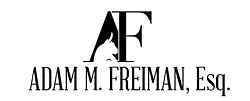Do your research before choosing a debt settlement program and avoid the risks associated with some of these companies who make false claims.
According to the Consumer Financial Protection Bureau:
Debt settlement may well leave you deeper in debt than you were when you started. Most debt settlement companies will ask you to stop paying your debts in order to get creditors to negotiate and in order to collect the funds required for a settlement. This can have a negative effect on your credit score and may result in the creditor or debt collector filing a lawsuit while you are collecting funds required for a settlement.
Dealing with overwhelming debt can be a challenging and stressful experience, prompting many individuals to explore various options to regain financial stability. Two common approaches are filing for bankruptcy or seeking the services of debt settlement or debt management companies. While some debt settlement companies are legit, others are financial predators looking to make money while not doing much more than you could do yourself.
Bankruptcy Does Have Some Advantages
Filing for bankruptcy provides a clear and legally binding resolution to your financial troubles. Once approved by the court, your eligible debts are discharged, offering a fresh start without lingering obligations. In contrast, debt settlement negotiations can be lengthy and uncertain, often resulting in only partial debt relief.
Protection from Creditors
One of the significant advantages of bankruptcy is the automatic stay, a legal injunction that prevents creditors from pursuing collection activities. This includes harassment calls, wage garnishments, and legal actions. Debt settlement, on the other hand, may not offer the same level of immediate protection, leaving individuals vulnerable to continued creditor pressure.
Comprehensive Debt Relief
Bankruptcy provides a more comprehensive approach to debt relief, addressing a wide range of debts, including credit cards, medical bills, and unsecured loans. Debt settlement companies may focus on specific types of debt, leaving individuals with a fragmented financial picture and ongoing obligations.
Predictable Process
Bankruptcy proceedings follow a well-established legal process, providing a level of predictability for individuals seeking debt relief. Debt settlement, on the other hand, can be unpredictable, with outcomes varying depending on negotiations and creditor willingness to cooperate.
Preservation of Assets
Bankruptcy laws typically allow individuals to retain certain essential assets, such as a home, car, and personal belongings. Debt settlement may involve liquidating assets to fund settlements, potentially leading to the loss of valuable possessions.
Credit Rebuilding Starts Sooner
While bankruptcy has a significant impact on your credit score, the rebuilding process can begin sooner compared to debt settlement. Bankruptcy remains on your credit report for a set period, after which you can work towards rebuilding your credit. Debt settlement, with its prolonged negotiation phase, may delay the start of the credit rebuilding process.
Legal Protections
Bankruptcy offers legal protections that debt settlement cannot replicate. The court oversees the process, ensuring fairness and adherence to the law. In contrast, debt settlement lacks the same level of legal oversight, potentially leaving individuals exposed to unscrupulous practices.
Carefully Examine the Fees Charged by Debt Settlement Companies
Credit counseling and debt consolidation companies are in business to make money first.
Some charge upfront fees for their services. These fees can be substantial and are typically collected before any actual debt negotiation takes place. This means clients may be paying significant amounts without any guarantee of successful debt reduction.
Monthly Service Fees
In addition to upfront fees, debt settlement companies commonly charge monthly service fees. These ongoing charges can add up over the course of the debt settlement process, regardless of the outcome. Clients may find themselves paying substantial amounts without achieving the desired debt relief.
Percentage of Debt Enrolled
Some debt settlement companies charge a percentage of the total debt enrolled in their program. This means that as clients accumulate more debt, the fees charged by the settlement company also increase. This fee structure may create a conflict of interest, as the company benefits more when clients have higher levels of debt.
Success Fees
Debt settlement companies may impose success fees, calculated as a percentage of the amount saved on settled debts. While success-based fees might seem reasonable, they can still represent a significant financial burden for clients, especially when considering the high overall cost of debt settlement.
Administrative Costs
Clients may encounter additional administrative costs, such as account maintenance fees and fees associated with the distribution of settlement payments. These expenses can accumulate throughout the debt settlement process, contributing to the overall financial burden on individuals seeking relief.
Hidden Charges and Miscellaneous Fees
Debt settlement companies might include hidden charges and miscellaneous fees in their contracts. It is crucial for clients to carefully review all terms and conditions to uncover any undisclosed costs that could further strain their financial resources.
Make an Informed Decision Regarding Debt Settlement
While debt settlement companies offer an alternative to bankruptcy, it is essential for individuals to be aware of the various ways these companies generate revenue. The upfront fees, monthly service charges, and success-based fees can significantly impact the overall cost of seeking debt relief through settlement. When weighing the options between bankruptcy and debt settlement, understanding the financial implications is crucial to making an informed decision.
Seeking the guidance of a reputable financial advisor or bankruptcy attorney can provide individuals with the insights needed to choose the most suitable path for their unique financial circumstances.
Resources:
Are Debt Relief Programs a Scam? (Source: Experian)
Debt settlement may well leave you deeper in debt than you were when you started. Source: Consumer Financial Protection Bureau
.







